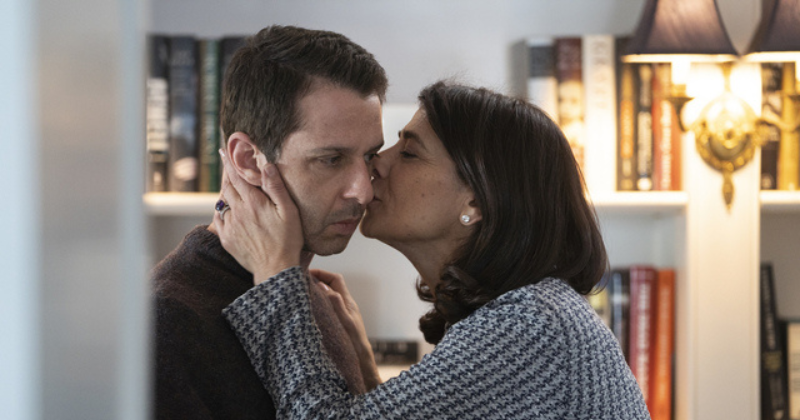
Jeremy Strong's book list is perfect for reading atop a bluff in strong and moody winds.
The premiere of Succession’s fourth season is less than a month away, and the shadowy outline of a wilted Prince Hal is already angling down the hall. Jeremy Strong, who plays Kendall Roy, the firstborn failson of the Henry IV/King Lear-ish patriarch Logan Roy, has talked about his approach to character-building in a number of interviews, and it rests in no small part on a mountain of books. Heady books.
In GQ’s March cover story, Strong drops literary names in a stream-of-consciousness while rambling over the English countryside with reporter Gabriella Paiella. A 2021 New Yorker profile was likewise replete with quotations, and for GQ’s “10 Things Jeremy Strong Can’t Live Without” video series, Strong managed to break the ~cardinal~ rule by hauling in a crate of books under the guise of being one item. And the books were revealing. The granular moments that add up to Kendall—whom we may find rapping to The Beastie Boys in his limousine, recuperating naked among the tundra, or driving a cater-waiter toward “too much of water”—can be picked out of the sands of the literary canon. Fyodor Dostoyevsky drops a dark, shimmering grain of pain into the tray, while Harold Pinter throws in a speck of corruption, and Karl Ove Knausgaard drops in eight large boulders of detail about coffee, suffering, and the father figure.
Strong, a method actor who chooses to disappear into the texts he performs, appears to be something of a bibliophile. Writes Paiella:
Here, an exhaustive list of everyone he quotes or references by name in my presence: Henry James, T.S. Eliot, Walker Percy, Kenneth Lonergan, Mark Strand, Hilary Mantel, Karl Ove Knausgård, Dustin Hoffman, Glenn Gould, Stanley Kunitz, Ralph Waldo Emerson, Rainer Maria Rilke, Anthony Hopkins, Meryl Streep, Charles Bukowski, Steven Pressfield, Steven Spielberg, M. Scott Peck, Ron Van Lieu, Carl Jung, Franz Kafka, Barry Michels, Peter Brook, Thomas Kail, Jiddu Krishnamurti, Cate Blanchett, Bob Dylan, LCD Soundsystem, John Berryman, and John Keats talking shit about Lord Byron. [Emphasis: ours]
It is a treat to go from Strong’s reading list to the onscreen manifestation of those ideas, since usually the sight of someone reading is it itself visually unremarkable. Herein, his formative bookshelves…
*
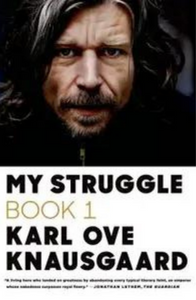
Karl Ove Knausgaard, My Struggle
Strong described My Struggle in the GQ video as “the most honest expression of life that I’ve ever read anywhere.” He called out granular scenes such as Knausgaard’s young daughter picking out shoes for a party as an example of how Knausgaard captures “the beauty and sacredness of small moments.”
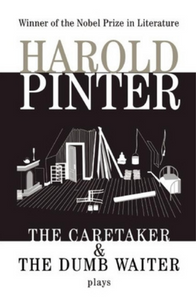
Harold Pinter, The Caretaker
Harold Pinter’s plays are often wicked and spare, and heavily scrutinized familial relationships are never far off. Strong told Paiella that Pinter’s work shows that “the more acute the experience, the less articulate its expression.”
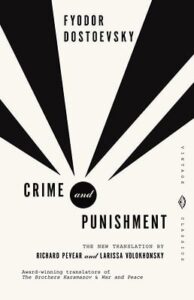
Fyodor Dostoyevsky, Crime and Punishment
What we need to know about Crime and Punishment in the context of this reading list is that Raskolnikov, the main character, is not a joiner, believing himself to be superior to everyone else. He spends the novel alienated from society, murders some people, and, late, realizes his own mediocrity. For Strong, Raskolnikov is something of a key, wrote The New Yorker’s Michael Schulman in a 2021 profile: “When I asked Strong about the rap that Kendall performs in Season 2, at a gala for his father—a top contender for Kendall’s most cringeworthy moment—he gave an unsmiling answer about Raskolnikov, referencing Kendall’s ‘monstrous pain.’”
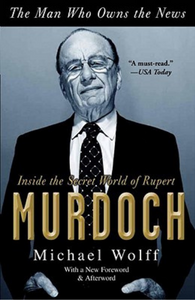
Michael Wolff, The Man Who Owns The News
Unsurprisingly, Strong has delved into Michael Wolff’s biography of Rupert Murdoch, who has been suggested as a real-life inspiration for Logan Roy. The New Yorker’s Schulman recalled a detail from the book that leapt out at Strong: “apparently, Murdoch’s son James ties his shoes extremely tightly, which told Strong something about his ‘inner tensile strength.’”
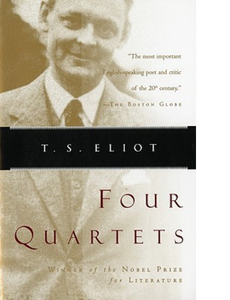
T. S. Eliot, Four Quartets
Strong has mentioned T.S. Eliot a couple of times, not being averse to a sublime poem. Four Quartets is considered his masterpiece.
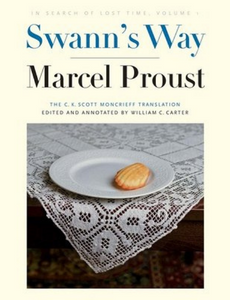
Marcel Proust, Swan’s Way: In Search of Lost Time (Volume 1)
While in school, Strong delved through Proust’s multi-volume series In Search of Lost Time, telling GQ that, “These books saved me because I didn’t have much of a social life.”
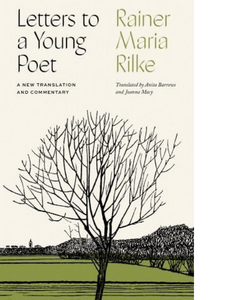
Rainer Maria Rilke, Letters to a Young Poet
Whether Kendall is crumpling into his father’s arms or plopping defeated onto the Tuscan dust, Strong’s physicality in the role says: exhaustion. He has taken inspiration from Rainer Maria Rilke, who taught him that “surely all great art is the product of having been in danger.”
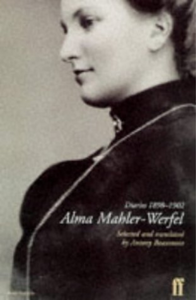
Alma Mahler-Werfel, Diaries, 1898-1902
The Austrian composer Alma Mahler “talks about the dichotomy inside people of what she calls the loving soul and the calculating soul,” Strong explained to GQ, adding that the great artists of history “made work of real value when operating from the loving soul.”
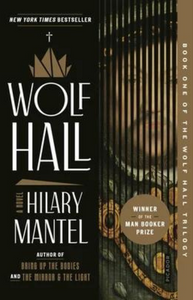
Hilary Mantel, Wolf Hall
Strong has studied Thomas Cromwell’s rise to power in the court of Henry VIII in the form of Hilary Mantel’s fictionalization, per his GQ interview, in which he recalled a childhood beating from Cromwell’s childhood:
“I remember writing it down, because I was thinking about Succession,” he said. “In a way, I would say that’s what Kendall’s arc”—a child who is both his father’s son and trying desperately to get out from under his thumb—“has slowly been.” (It should be noted that Cromwell is far more shrewd and capable than Kendall.) (It should also be noted that things did not end well for old Thomas Cromwell.)
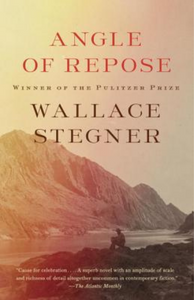
Wallace Stegner, Angle of Repose
Wallace Stegner “talks about the pain of every choice,” Strong told GQ, adding, that “to become an adult is to collapse choices […] and to lose that sense of infinite possibility.”
Janet Manley
Janet Manley is a contributing editor at Literary Hub, and a very serious mind indeed. Get her newsletter here.



















